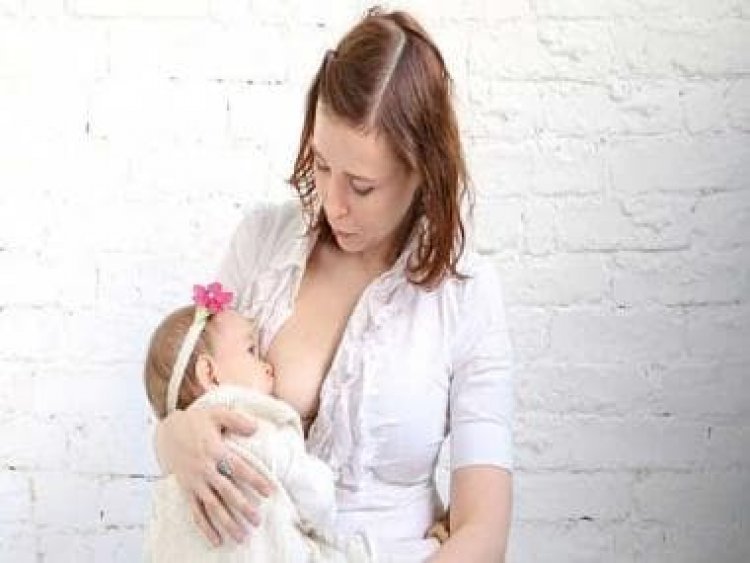World Breastfeeding Week: Scaling up breastfeeding can curtail infant and maternal deaths
World Breastfeeding Week: Scaling up breastfeeding can curtail infant and maternal deaths

As we observe the first week of August as World Breastfeeding Week, we have a role to inform, anchor, engage and galvanise actions on strengthening the capacity of actors and systems for promoting and sustaining a lifesaving intervention that breastfeeding is.
Globally, the World Health Assembly (WHA) has set a target to increase the exclusive breastfeeding rate to 50 per cent by 2025. By the time these targets were set in 2012, India was well on its way to reaching a national exclusive breastfeeding rate of 50 pwr cent. Today, 64 per cent of children under six months are exclusively breastfed in the country. While this should be celebrated, we must also look at the data which depicts uneven coverage across the first six months and very low early initiation.
Exclusive breastfeeding (EBF) is the practice of only giving an infant breast milk for the first six months of life, with no other food or water added is the cornerstone of optimum infant nutrition. In India, EBF among children under six months increased from 55 per cent in 2015-16 to 64 per cent in 2019-21. While the national average is 64 per cent, the prevalence declined from around 76 per cent during birth to two months to nearly 20 per cent by the time of six months. Three states (Sikkim, Meghalaya and Nagaland) are still below the WHA target of 50 per cent.
As per NFHS-5 (2019-21), only 41.4 per cent of children initiated breastfeeding within one hour of birth and this has not changed since 2015-16. This is a dangerous delay where around 60 per cent of newborn babies are not able to initiate breastfeeding during the golden hour. This is unbelievable where close to 90 per cent of deliveries are conducted in health facilities and we are still not able to increase the early initiation of breastfeeding. There is a need for the health system to reflect and do more on this.
Globally, India has the second highest under-five mortality (0•78 million deaths in 2020), attributable to an array of factors such as childhood illnesses, poor water and sanitation, poor healthcare access and sub-optimal breastfeeding. Although it’s the mother who has to breastfeed, it is our collective responsibility and sensitizing both the parents from pregnancy is essential. However, NFHS-5 data shows that during pregnancy while 90.2 per cent of pregnant women received advice on breastfeeding, only 60.4 per cent of fathers could recall someone explaining to them the importance of breastfeeding.
Evidence has shown that breastfeeding prevents childhood illnesses and malnutrition, the risk of mortality and improves cognitive development. Breastfeeding also has protective effects on preventing breast and ovarian cancer among mothers. Breastfeeding has proven to be one of the cost-effective interventions to improve newborn and child health as well as build human capital for the future. Globally, it is estimated that scaling up breastfeeding can prevent 823,000 child deaths and 20,000 maternal deaths each year.
Investing in breastfeeding is an investment not only in children and mothers; but also an investment in India's economic future. The World Bank estimated that investing in a core comprehensive breastfeeding strategy across all LMICs is expected to result in a return on investment of $35 over the lives of children for every $1 invested. The modelling tool developed by Alive and Thrive shows that the total economic cost to India from not breastfeeding according to recommendations, including mortality and cognitive losses, of children each year is estimated to be around $14,458 million each year, costing our GDP by 0.7 per cent.
The greatest component of this cost of not breastfeeding is the cognitive losses that children who are not breastfed. Suboptimal breastfeeding can lead to lower IQs, which in turn leads to lower potential earnings later in life. Currently, an estimated 4.7 million babies in India have not had exclusive breastfeeding for six months.
At least $5.7 billion in additional funding is required by 2025 to ensure that 50 per cent of the world’s children are exclusively breastfed. Many systemic interventions are required which include improving access to skilled breastfeeding counselling, building community networks to support breastfeeding, implementing breastfeeding-friendly health facilities, complying International Code of Marketing of Breastmilk Substitutes, supporting paid family leave and workplace facilities and improving monitoring systems that track the progress of policies, programs, and funding towards achieving this goal.
However, breastfeeding isn’t easy for all mothers, particularly in emergencies. In these times of difficulty, mothers need access to support. Skilled support, as well as basic interventions that support mothers and their youngest children, have a direct impact on her child's survival. The mothers of the world need our help to encourage and support their desire to feed their babies.
The author is Head – Nutrition, Save the Children, India. Views are personal.
Read all the Latest News, Trending News, Cricket News, Bollywood News,
India News and Entertainment News here. Follow us on Facebook, Twitter and Instagram.
What's Your Reaction?



























































